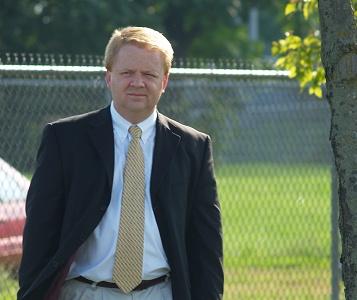
Last week, Allen County Recorder John McGauley, had a guest op-ed piece published in the Journal Gazette.
He has kindly consented to my including his entire commentary on this blog:
Trust is the lifeblood of good government. As elected officeholders, we absolutely cannot do our jobs without the faith of the people who elected us. Unfortunately, everywhere you look, at all levels of government, that trust is running dry.
Citizens want to see for themselves through a preponderance of evidence and an abundance of access that we are doing the jobs they hired us to do. When they cannot see this, citizens have just cause to fear that government is up to something, that it has something to hide or that politicians are not being honest about their motives.
I am not saying anything that citizens do not already know. But it seems that this cannot be said often enough in the halls of government. As a former print journalist and public information officer and now as an elected officeholder, I have witnessed every side of this phenomenon. In an information age in which everything else is available at the click of a mouse, basic government information should be far easier to obtain and far more a part of every citizen’s basic toolkit.
But the fact is that basic information about what government is doing, how it is spending precious tax dollars and who gets those dollars remains too hard to find. The problem is pervasive, it is corrosive to citizens’ faith in government and, believe it or not, it is an easy problem to solve.
I propose the following ways to shed light on what government is doing, ease the path to public records and reinvigorate the partnership between elected officeholders and the people they represent:
1.) A Local Public Records Ordinance: Fort Wayne and Allen County governments should set an example for other units of local government by passing ordinances mandating that all contracts, regardless of their value, and a regular register of claims be posted online. Contracts being considered for approval by the County Commissioners or City Council should be made available online before they are signed and later in their final form.
In April of 2008, Fort Wayne and Allen County launched a joint public information portal at www.fwacinfo.us to increase awareness of government meetings. This web site should serve as a one-stop resource for this vital financial information. The web traffic to blogs alone should be proof that citizens, while they may not have time to drive downtown for the information they want, will look for it online and will read the details.
By making a register of claims available as well, citizens can see the day-to-day details of how government is paid for, not just the high-profile contracts that might make the news. An abundance of information breeds faith and fills a vacuum that otherwise gets filled by suspicion.
2.) A More Active Public Records Commission: Allen County, like counties all across Indiana, has a Public Records Commission that has little to do with the dissemination of public records. Instead, these commissions are set up by state code to oversee compliance with records retention schedules. The commission’s mission is to make sure that public records are preserved and protected, not necessarily that they get conveyed to interested citizens.
As chair of Allen County’s Public Records Commission, I think these bodies might be able to do more. Our community should take a leadership role by working with the General Assembly to get permission for public records commissions to act as intermediaries in public records disputes. Citizens who believe they have been wrongly denied access to records currently have two options: to appeal to a state Public Access Counselor, who is empowered only to issue advisory opinions, or to take deep-pocketed government entities to court.
Perhaps we can make these fights a little fairer by giving local public records commissions, with the help of an expert in open records law, a say in the matter. Providing a local venue for these disputes will certainly shine a brighter light on the behavior of local governments and make elected officials more agreeable to the openness and transparency they talk about.
3.) A Paradigm Shift In the Way We Think: We see countless litmus tests applied to candidates. Let’s apply a litmus test that really matters. We should begin electing officeholders who believe, as citizens do and their representative should, that public records belong to the people who elect us, not to governments to dole out as they see fit.
Citizens are the owners of government. They entrust officeholders to represent their interests and to answer their questions quickly and completely. Unfortunately, the few officeholders who believe that information belongs to them, to be doled out when it squares with their self-interests, are perpetuating the belief that government is closed and secretive.
When the next election cycle gets underway in 2010, citizens should start asking this question of candidates: “Do you believe that the business of government is our business or yours?” You will know the right answer when you hear it. Those who believe that the details are “none of their business” will quickly and deservedly sink to the bottom of the heap.
There are very specific, limited instances in which the withholding of information by government is legal and even smart, such as when it pertains to personnel or legal matters. But too often, governments are making up their own exemptions and daring citizens to do something about it.
Let’s do something about it.